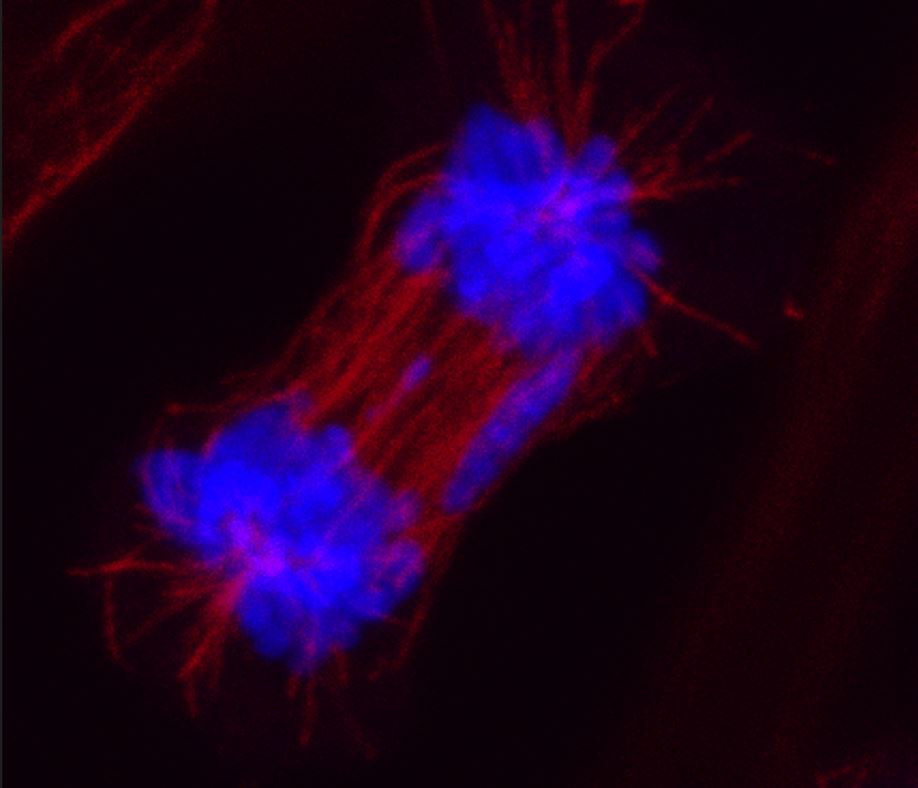The role of RNF114B, a key gene in the progression and treatment of lung adenocarcinoma, has been discovered
The role of RNF114B, a key gene in the progression and treatment of lung adenocarcinoma, has been discovered
The alteration of RNF144B especially affects the progression of lung adenocarcinoma tumours. According to the study, this gene’s low expression is related to a worse prognosis and greater resistance to conventional chemotherapy treatment.

Research led by the Cancer Biology Laboratory of the Department of Medicine and Life Sciences (MELIS) at Pompeu Fabra University, in collaboration with the Center for Genomic Regulation and the Murcian Institute of Biosanitary Research, has managed to identify the function of the RNF144B gene that, under normal conditions, is involved in controlling cell division and genomic integrity. These functions are lost when the expression of this gene is insufficient, especially affecting the formation of lung adenocarcinoma tumours. In addition, the results of this research suggest that patients with low levels of expression of this gene have a worse prognosis and high resistance to conventional chemotherapy treatment.
The p53 gene is the most important known tumour suppressor. It is mutated in 50% of cancers, and when this happens, it loses the ability to protect the body’s cells against the development of cancerous processes, and tumours develop very quickly. But p53 does not act alone.
“The p53 gene is the closest thing to an orchestra conductor inside the cell. It coordinates a great many cellular functions, ranging from controlling cell death to aging, or cell division rate and quality. And all this is done by regulating the expression of more than 300 genes”, asserts Etna Abad, first author of the article.
An experimental study in humans and mice published in Journal of Experimental & Clinical Cancer Research, led by the UPF Cancer Biology Laboratory, has described the role of RNF144B, one of the genes regulated by p53 whose function was hitherto unknown. According to the study, under normal conditions, the RNF144B gene regulates cell division and genomic stability, and it does so by controlling the degradation of the proteins involved in these processes.
“If RNF144B fails and is insufficiently expressed, chromosomal chaos occurs in the cell during cell division, so it begins to have more chromosomes than it should, which leads to the onset of cancerous processes”, explains Ana Janic, who coordinated the study.
Altered expression of RNF144B leads to poor prognosis and treatment resistance in lung cancers
Although RNF144B mutations are not very common, their effect is important, as it results in a worse prognosis for patients suffering from solid lung tumours such as adenocarcinoma. Moreover, the results of the research show that it is not necessary to have the mutated gene to have a bad prognosis. Having an almost non-existent, altered expression of the gene has the same outcome.
“We have seen that RNF144B plays an important role in cancer processes, because, although p53, the tumour suppressor gene par excellence, is intact, the alterations in RNF144B are sufficient to induce the formation of tumours in tissues like the lung”, Abad points out.
The study also shows that tumour cells that express RNF144B abnormally are more resistant to conventional chemotherapy. This result, if confirmed with further studies using clinical data, “would corroborate the role of RNF144B as a biomarker to determine the treatment of patients with lung adenocarcinomas”, Janic adds.

“This study also highlights that the biology of p53 and the genes under its control, like RNF144B, is complex, as it can differ greatly depending on the tissue where the cancer originated. Thus, to find effective therapies, we have to specifically study the different genetic alterations in each type of cancer”, Janic concludes.
Reference article:
Abad, E, et al; The TP53-activated E3 ligase RNF144B is a tumour suppressor that prevents genomic instability. J. Exp. Clin. Cancer Res. 2024, 29, Apr. DOI: 10.1186/s13046-024-03045-4
Funding:
This study has been funded by the Spanish Ministry of Science, Innovation and Universities (PID2021-127710OB-I00; RYC2018-025244-I; CEX2018-000792-M), the La Caixa Foundation, and the Spanish Association Against Cancer (POSTD234858ZADR).
